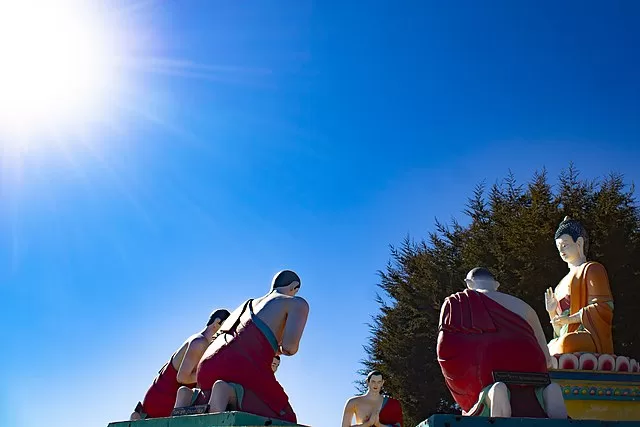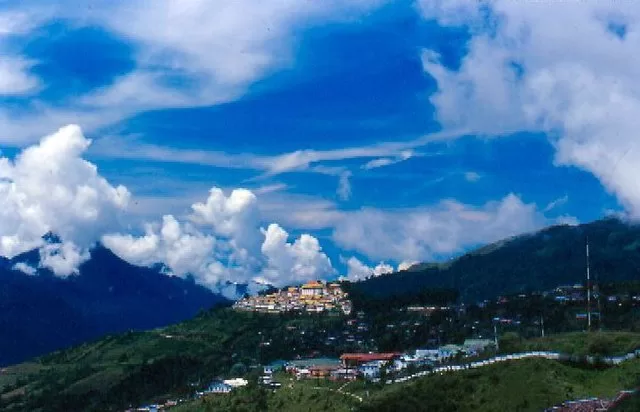Nestled in the lap of the Himalayas, Tawang is a picturesque town located in the northeastern state of Arunachal Pradesh, India. Blessed with breathtaking landscapes, serene monasteries, and vibrant festivals, Tawang is a dream destination for nature enthusiasts and adventure seekers alike. In this article, we will explore Tawang’s weather throughout the year, helping you plan an unforgettable trip to this beautiful region.
Understanding Tawang’s Geography
Tawang is situated at a high altitude of approximately 10,000 feet above sea level, surrounded by snow-capped mountains and lush green valleys. Its unique geographical location greatly influences its weather patterns.
Seasons in Tawang
1 Winter (December to February)
During winter, Tawang transforms into a winter wonderland with temperatures dropping significantly below freezing point. Heavy snowfall covers the landscape, creating a mesmerizing white panorama. It’s a challenging yet magical time to visit Tawang.
2 Spring (March to May)
Spring is a delightful time to visit Tawang when the snow begins to melt, and the valleys come alive with vibrant flowers. The weather is pleasant, making it perfect for sightseeing and outdoor activities.
3 Summer (June to August)
Tawang experiences cool and comfortable summers, providing a welcome respite from the scorching heat of the plains. The temperature remains moderate, making it an ideal time for tourists.
4 Autumn (September to November)
Autumn paints Tawang in warm and earthy hues. The weather remains mild, and the clear skies offer breathtaking views of the surrounding mountains.
Tawang’s Temperature Fluctuations
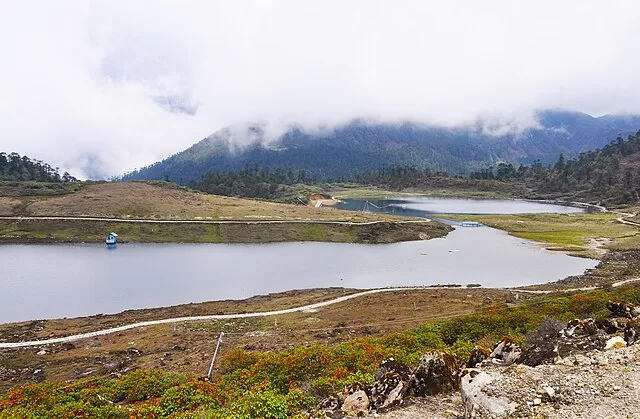
1 Chilly Winters and Snowfall
In winters, temperatures can plunge to as low as -10°C (14°F) or even lower. The town is enveloped in snow, making it a paradise for snow lovers.
2 Pleasant Springs
During spring, the temperature hovers between 5°C to 15°C (41°F to 59°F), creating a pleasant atmosphere for exploring the region.
3 Cool Summers
Summers are cool and refreshing, with temperatures ranging from 10°C to 25°C (50°F to 77°F), providing a comfortable environment for tourists.
4 Mild Autumns
Autumn temperatures range from 5°C to 20°C (41°F to 68°F), offering a delightful experience to visitors.
Rainfall Patterns in Tawang
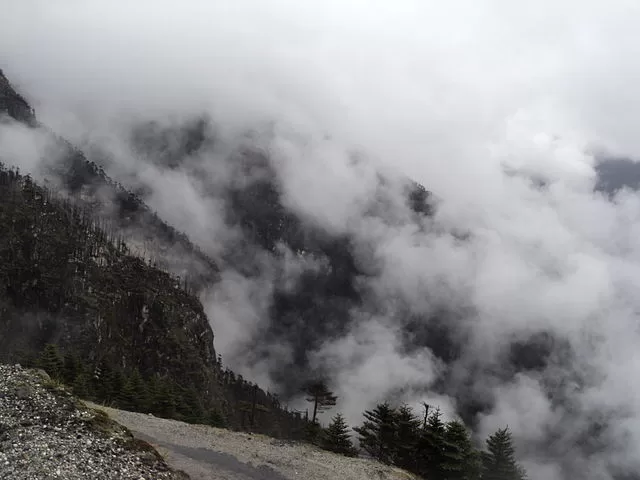
Tawang experiences moderate rainfall during the monsoon season, which typically lasts from June to September. The rainfall enhances the region’s beauty, adding to its charm.
The Best Time to Visit Tawang
The best time to visit Tawang is during the spring and summer months, from March to June. This period offers pleasant weather and allows travelers to explore the region without the hindrance of heavy snow or rain.
Dressing Tips for Tawang’s Weather
Pack warm, layered clothing for winter visits to Tawang, while light woolens are suitable for spring and summer trips. Additionally, don’t forget to carry sturdy walking shoes, as the terrain can be challenging.
Exploring Tawang in Different Seasons
Tawang’s charm varies with each season. In winters, indulge in snow activities, while spring brings forth beautiful flower-filled valleys. Summer offers pleasant weather for sightseeing, and autumn treats you with mild temperatures and clear skies.
Popular Tourist Attractions in Tawang
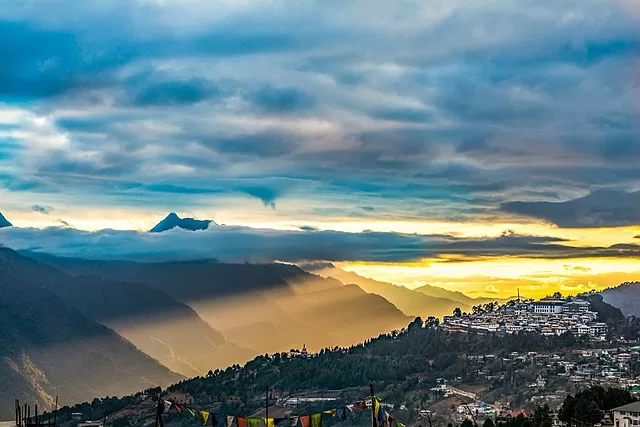
1 Tawang Monastery
One of the largest monasteries in India, Tawang Monastery is a significant spiritual and cultural hub, perched atop a hill offering breathtaking views.
2 Sela Pass
Located at an altitude of 13,700 feet, Sela Pass is a mountain pass that remains covered in snow for most of the year and provides a spectacular drive through the Himalayas.
3 Pankang Teng Tso Lake
This serene lake, also known as PT Tso Lake, is surrounded by pristine beauty and offers a tranquil atmosphere to relax and enjoy nature’s marvels.
4 Nuranang Waterfall
Also called Jang Waterfall, this majestic cascade is a sight to behold during the monsoon season when it attains its full glory.
5 Bumla Pass
Situated at the Indo-China border, Bumla Pass offers a thrilling experience and breathtaking views of the surrounding mountains.
Tawang’s Unique Festivals
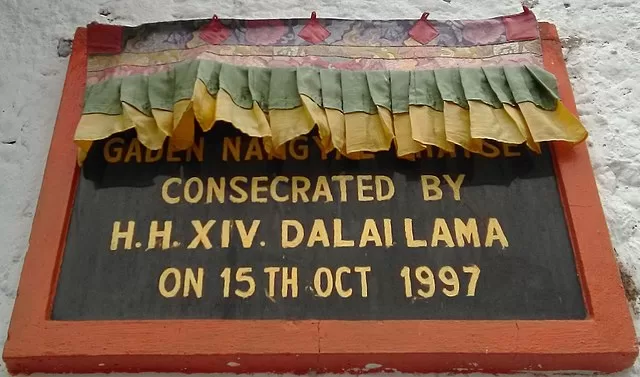
1 Losar Festival
Losar, the Tibetan New Year, is celebrated with great fervor in Tawang, featuring vibrant rituals and colorful processions.
2 Torgya Festival
Torgya is a significant monastic festival celebrated at Tawang Monastery, showcasing traditional dance performances and religious ceremonies.
Safety Tips for Travelers
While traveling to Tawang, be prepared for challenging weather conditions, especially during winter. Carry essential medicines, warm clothing, and maintain caution while driving on hilly roads.
How to Reach Tawang
1 By Air
The nearest airport to Tawang is Tezpur Airport, followed by a scenic drive to Tawang.
2 By Road
Tawang is well-connected by road from Tezpur and other major cities in Arunachal Pradesh.
3 By Rail
The nearest railway station is Tezpur Railway Station, from where tourists can continue their journey by road.
Conclusion
Tawang, with its awe-inspiring natural beauty, rich culture, and pleasant weather, is a must-visit destination for travelers seeking an extraordinary Himalayan experience. Whether it’s the tranquil monasteries, stunning lakes, or thrilling mountain passes, Tawang offers an unforgettable adventure for all. Embrace the diverse seasons, immerse yourself in the local festivals, and discover the enchanting charm of Tawang.
FAQs
1. What’s the best time to visit Tawang if I hate the cold?
If you’re not a fan of freezing temperatures, skip the winter months! The best time for you would be April to June, when the weather is pleasantly cool and perfect for sightseeing without bundling up like a snowman.
2. Does it snow in Tawang, and when?
Oh yes, it definitely does! Tawang turns into a snowy wonderland typically from late November to early March. If you dream of snowfall and snow-capped monasteries, that’s your window.
3. Is monsoon season a bad time to visit Tawang?
Well, it depends. The monsoon (July to September) brings lush greenery but also landslides and slippery roads. It’s beautiful, no doubt, but traveling can be a bit tricky during this time.
4. How cold does it actually get in winter?
Brace yourself—temperatures in Tawang during winter can drop well below zero, sometimes even reaching -15°C or lower at night. So, if you’re visiting then, pack those thermals and woolens!
5. What should I pack for a trip to Tawang?
Great question! Layers are your best friend. No matter the season, pack a good jacket, warm clothes, and comfortable shoes. And yes, even in summer, evenings can get chilly, so don’t leave that hoodie behind!

